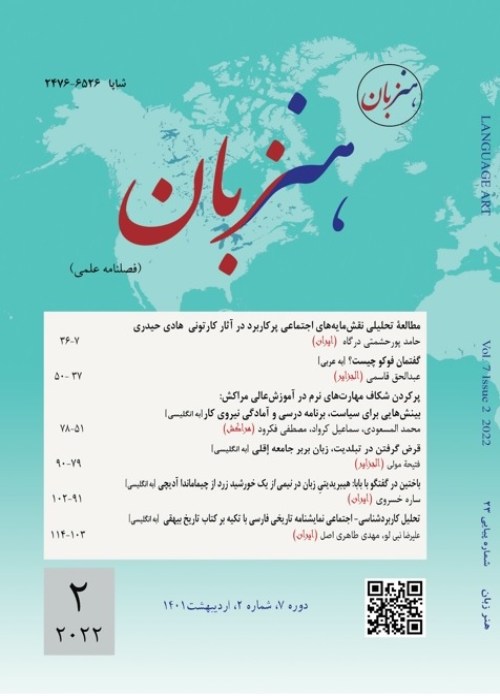On the Cause of the Asymmetric Distribution between Scrambling and Postposing in Japanese
Author(s):
Article Type:
Research/Original Article (بدون رتبه معتبر)
Abstract:
Japanese exhibits a large degree of flexibility in terms of word order. Thus, not only SOV but also OSV (scrambling) and SVO (postposing) are grammatical. In terms of discourse function, there are some similarities between scrambling and (non-pause type) postposing. According to Author (2017) and Shimojo (2005), scrambled objects and postposed elements are anaphorically salient but cataphorically non-salient. Yet, Shimojo (2005: 202) observed no example with a postposed object. In order to explain this tendency, I propose that scrambling is not as costly as postposing due to the following two reasons. First, scrambling follows given-new-ordering whereas postposing does not. Second, rightward movements are more costly than leftward movements in Japanese (Fukui: 1993). Therefore, postposing is expected to be selected when scrambling cannot be chosen. As scrambling can be used for the object but not for the subject in SOV, postposing is dominantly utilized for subjects.
Keywords:
Language:
Persian
Published:
Language Art, Volume:3 Issue: 2, 2018
Pages:
77 to 96
magiran.com/p1842884
دانلود و مطالعه متن این مقاله با یکی از روشهای زیر امکان پذیر است:
اشتراک شخصی
با عضویت و پرداخت آنلاین حق اشتراک یکساله به مبلغ 1,390,000ريال میتوانید 70 عنوان مطلب دانلود کنید!
اشتراک سازمانی
به کتابخانه دانشگاه یا محل کار خود پیشنهاد کنید تا اشتراک سازمانی این پایگاه را برای دسترسی نامحدود همه کاربران به متن مطالب تهیه نمایند!
توجه!
- حق عضویت دریافتی صرف حمایت از نشریات عضو و نگهداری، تکمیل و توسعه مگیران میشود.
- پرداخت حق اشتراک و دانلود مقالات اجازه بازنشر آن در سایر رسانههای چاپی و دیجیتال را به کاربر نمیدهد.
In order to view content subscription is required
Personal subscription
Subscribe magiran.com for 70 € euros via PayPal and download 70 articles during a year.
Organization subscription
Please contact us to subscribe your university or library for unlimited access!


